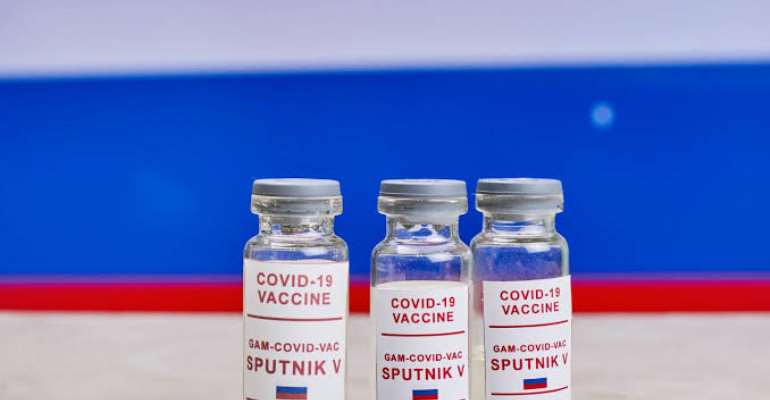Understanding What Russia's Sputnik V Could Mean for Africa

More and more African countries are registering Russia's Sputnik V vaccine. The Russian Direct Investment Fund (RDIF) said in a statement that Angola, Djibouti and the Republic of Congo (DRC) have officially authorized Russia's coronavirus vaccine Sputnik V for mass use to fight the COVID-19 in their respective countries. It is health assistance aims at stopping further spread of the pandemic on the continent.
"The Russian Direct Investment Fund announces the approval of the Russian Sputnik V vaccine against coronavirus by regulatory authorities of the Republic of Angola, Republic of Congo and Republic of Djibouti. Sputnik V has been registered under the emergency use authorization procedure," the RDIF said in a statement.
Russia's drive to share Sputnik V vaccine, of course, offers a chance to raise its image and strengthen alliances in Africa. Ministry of Foreign Affairs has made efforts promoting the vaccine using all its channels. Prime Minister Hichem Mechichi and Russian Foreign Minister Sergey Lavrov agreed at phone call March 2 to speed up the delivery of COVID-19 vaccines - Sputnik V. They also agreed on increasing efforts for fruitful cooperation in combating coronavirus.
Russia could be filling in the gap where vaccines remain scarce. That means, it has to delivery promptly and with the same speed as it registers the vaccine around world. China and India are also vying for global influence by distributing vaccines to low- and middle-income countries. As well-known, India is home to one of the world's largest vaccine manufacturers, the Serum Institute of India, as well as other vaccine companies producing candidates.
Reportedly, Sputnik V coronavirus vaccine has been registered in Algeria, Egypt, Gabon, Ghana, Guinea, Tunisia and Zimbabwe. In all, the Russian vaccine has now been approved for emergency use in more than 40 countries across the world.
According to an official media release obtained late February, the Sputnik V vaccine the following advantages:
• Efficacy of Sputnik V is 91.6% as confirmed by the data published in the Lancet, one of the world's oldest and most respected medical journals; It is one of only three vaccines in the world with efficacy of over 90%; Sputnik V provides full protection against severe cases of COVID-19.
• The Sputnik V vaccine is based on a proven and well-studied platform of human adenoviral vectors, which cause the common cold and have been around for thousands of years.
• Sputnik V uses two different vectors for the two shots in a course of vaccination, providing immunity with a longer duration than vaccines using the same delivery mechanism for both shots.
• The safety, efficacy and lack of negative long-term effects of adenoviral vaccines have been proven by more than 250 clinical studies over two decades.
• The developers of the Sputnik V vaccine are working collaboratively with AstraZeneca on a joint clinical trial to improve the efficacy of AstraZeneca vaccine.
• There are no strong allergies caused by Sputnik V.
• The price of Sputnik V is less than $10 per shot, making it affordable around the world.
In February, peer-reviewed medical journal The Lancet published an interim analysis from Phase III clinical trial of the Russian vaccine, showing its 91.6-percent efficacy against symptomatic COVID-19. Developed by the Gamaleya Research Institute of Epidemiology and Microbiology, Sputnik V was the world's first officially-registered vaccine against COVID-19.
Russian Direct Investment Fund (RDIF) is Russia's sovereign wealth fund established in 2011 to make equity co-investments, primarily in Russia, alongside reputable international financial and strategic investors. RDIF acts as a catalyst for direct investment in the Russian economy. RDIF's management is based in Moscow.
Dr. Tedros Adhanom Ghebreyesus, Director-General of the World Health Organization has acknowledged that the pandemic has struck at a time of rapid transformation for Africa. According to Adhanom Ghebreyesus, it takes a whole-of-government, whole-of-society approach, and explicitly added that “many African countries have low levels of coverage of health services, and when health is at risk, everything is at risk.”
With its large population, many African countries this month have started receiving COVID-19 vaccines from the global COVAX scheme, and this is due to the fact that they have lagged behind the rest of the continent in the scramble for vaccines and welcomed donations from friendly governments.
World Health Organization (WHO) has declared the coronavirus outbreak a pandemic since March 2020. South Africa accounts for the biggest number of Africa's coronavirus cases. The overall number of COVID-19 cases in Africa currently stands more than 3.8 million late February, according to the World Health Organization (WHO) Regional Office for Africa.
